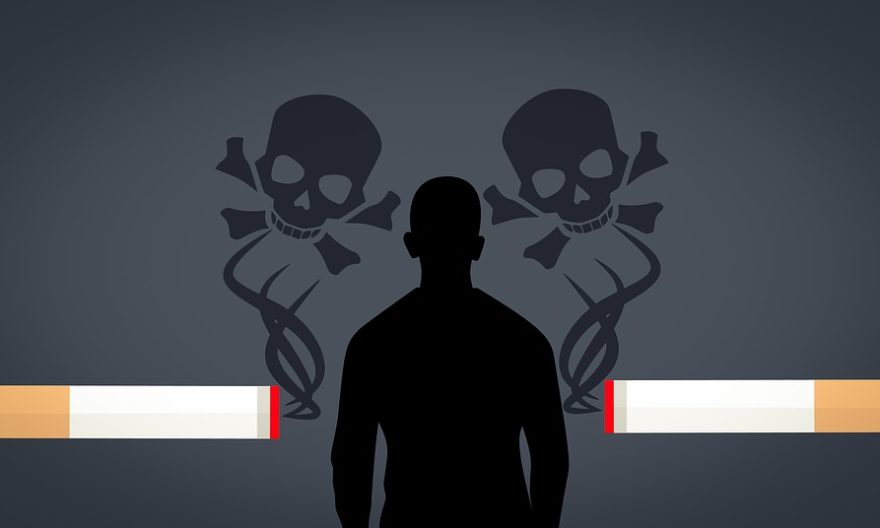
You probably already know that smoking can increase your risk for cancer and lung disease, but did you know that smoking can cause many oral health problems too?
Here’s some information on tobacco use and your oral health.
Common oral issues caused by smoking
No matter how you choose to smoke it, tobacco use can have deadly implications for your health.
Contrary to popular belief, the harmful substances inhaled when you smoke don’t affect only your lungs; they affect your entire body.
People who smoke are at a higher risk of developing various oral health complications, including gum disease, oral cancer, and severe complications after oral surgeries and tooth extractions.
Oral Cancer
Oral cancer is any cancer of the mouth, such as cancers of the gums, teeth, cheeks, tongue, mouth, and lips.
Symptoms of oral cancer include white or red patches in the mouth, swelling, and persistent, but painless, ulcers that do not go away within ten days.
Smokers account for 75% of those diagnosed with oral cancer. In smokers, oral cancer commonly occurs on the sides of the tongue and the floor of the mouth.
Non-smokers with oral cancer are far more likely to survive the disease than smokers with oral cancer.
Gum Disease
Gum disease, also called periodontal disease is an infection that damages the bone that surrounds and supports the teeth. If gum disease progresses, teeth may fall out or require removal by a dentist.
Some of the typical symptoms of gum disease include inflammation, redness, and bleeding. Smokers, however, do not usually exhibit bleeding because of a reduced blood supply to the gums, which makes it harder to identify the disease.
Since the immune system is inhibited by smoking, smokers do not respond well to typical gum disease treatments.
People who stop smoking have a higher chance of identifying gum disease sooner and mitigating its effects. If you suspect you might have gum disease, there are various options for dental hygiene in Southbank that offer scaling and root planning as well as other dental hygiene services.
Bad Breath
Heavy smokers are overwhelmingly affected by issues with bad breath or halitosis.
There are three typical causes of halitosis in smokers.
- Tobacco chemicals
- Dry mouth
- Oral hygiene issues
Tobacco products leave an odour on your breath, but they also significantly dry out the mouth, triggering issues with halitosis and an unpleasant taste.
Stained Teeth
Because of the tar and nicotine found in tobacco products, smoking leads to extremely stained teeth that are either yellow or brownish in colour, severely compromising the appearance of your smile.
Poor Dealing after Dental Surgery
Smokers are at a higher risk of developing dry socket, the painful condition that develops when the site of a tooth extraction heals improperly.
People who smoke also experience increased discomfort after oral and gum surgeries. Additionally, dental implants have a higher failure rate in smokers than non-smokers.
Tooth Loss
Smoking can cause gum recession, which can cause tooth loss. Teeth may either become loose and fall out on their own or have to be pulled by the dentist.
Dry Mouth
Inhalation of smoke causes dry mouth, which impacts saliva production. Saliva helps break down plaque and tartar which can produce gingivitis, without saliva plaque and tartar build-up can cause halitosis.
How to Quit
No one will deny that quitting a smoking habit is difficult. To successfully stop smoking, it is best to have a plan and the support of friends and family.
Some stop smoking methods include:
Nicotine Replacement
Nicotine replacements contain less nicotine and can help individuals to reduce nicotine intake slowly. However, medical professionals still contest the possible side effects of these alternatives.
Trigger Avoidance
Avoid stressful triggers that make you want to smoke a cigarette. These can include social situations, certain foods, and drinking alcohol.
Quitting Cold Turkey
With a good support system, cutting cigarettes completely out may be the best option.
Patches, lozenges, and therapy are additional options that may assist in quitting.
Health Benefits of Quitting Smoking
The oral health benefits of quitting smoking cannot be understated. After quitting, oral and gum surgeries are more successful and the healing time is typically faster. The body can also fight off acute gum diseases such as gingivitis better, after quitting, and overall tooth and gum health improve drastically.
The senses of taste and smell improve quickly after quitting, and the teeth may also become whiter.
Quitting smoking can also provide other health benefits and improve your overall appearance and quality of life.
Author’s Bio –
A conveniently located Elephant & Castle Dental Clinic in Southbank offers full range of preventive, restorative, cosmetic and aesthetic treatments for patients of all ages in and around SE1. Call us or visit our website for a free consultation.